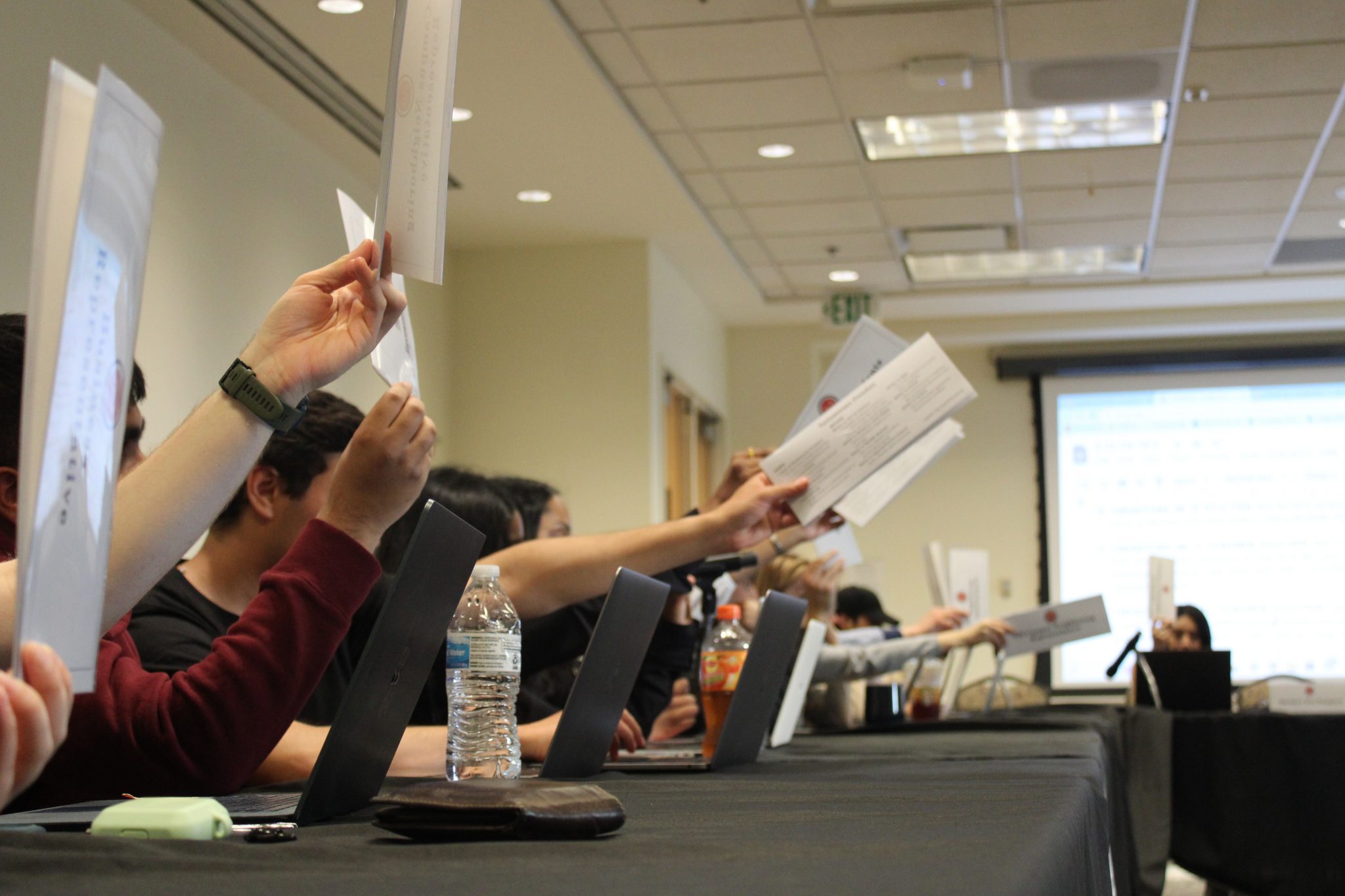By Sofie Paternite
For The Diamondback
The University of Maryland SGA voted Wednesday against changing the rules for ticket formation for future SGA elections after a contentious two-hour debate.
Student Government Association President Ayelette Halbfinger presented an emergency amendment to the SGA election rules that would delay ticket formation for SGA elections until after election rules are passed at the end of fall semester to increase equity among candidates, keep members productive and decrease social tension within the organization.
Under current rules, SGA members who want to run in elections can reach out to fellow members to form tickets before spring semester — something Halbfinger said distracts from the organization’s mission and culture.
The SGA voted on the amendment twice during Wednesday’s meeting. The initial vote passed, but a representative from the body requested a revote and debate.
After clarifying the voting process and amendment’s provisions, the body voted again and the amendment failed to pass, meaning ticket formation policies will remain as they are.
[Meet the candidates for UMD SGA president]
Halbfinger said she wanted to see the change in the SGA’s election rules so the body can avoid losing focus on making changes around campus.
“[Peers] are asking for your support and SGA elections in order to change the elitism, exclusion and lack of transparency and accountability that the current process and system provide,” Halbfinger said.
Some representatives agreed with Halbfinger and said the amendment is a step toward diversifying political opinions and agenda structures.
“I think that everyone knows this is a problem,” said Eliav Hamburger, a sophomore computer engineering major who serves as one of SGA’s engineering representatives. “I think it’s infinitely more important that this institution does its job with the administration that was elected last period … or else it will just continually develop into more toxic politics instead of actually doing our job first.”
[UMD SGA executive candidates emphasize student well-being, sustainability in debate]
Hamburger said it is more important that the SGA does its job with the current administration than that it plans for future elections.
Others disagreed and said this issue is unrelated to the betterment of policy change and reform.
“Everything affects the culture of the organization. I’ve seen debates we’ve taken personally. Everyone takes everything personally,” said Matthew Weiss, a senior mechanical engineering major and engineering representative for the SGA. “If we got rid of everything that affected the social construct of organization, the organization would not exist.”
Halbfinger said if this amendment were to pass, SGA could involve more of this university’s general body in the future and better represent public opinion.
“I really think that this is important to set a precedent and to ensure that people are putting their minds and their attention on the current semester, focusing their energies on what matters and not on building a platform to win or to build their personal power inside of the organization,” Hamburger said.
Halbfinger said the amendment has the potential to be reintroduced before the fall semester.
CORRECTION: A previous version of this story misstated the reason why SGA voted a second time on the amendment. The body voted twice because a revote and debate was requested after the first vote due to a representative’s concerns about the clarity of the initial vote. This story has been updated.



